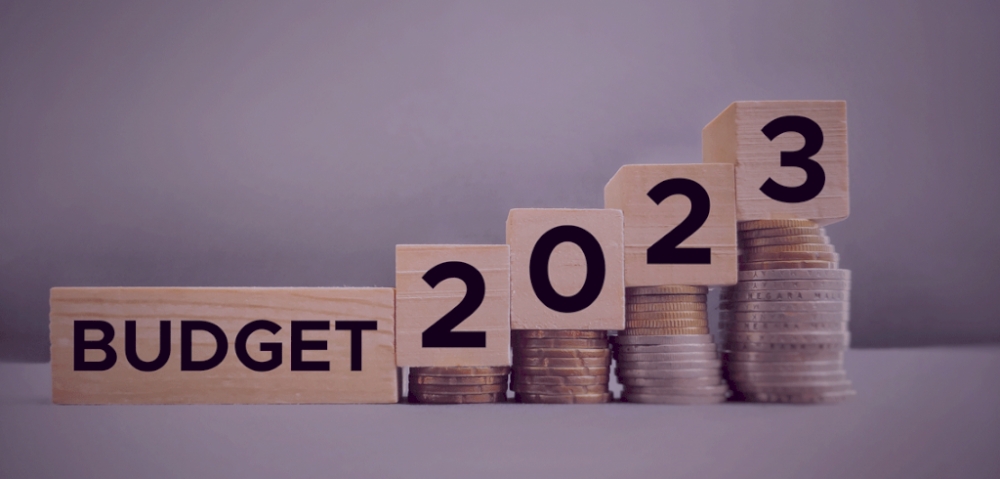“A Cost of Living Budget, helping with todays challenges, whilst ensuring we are ready for tomorrow”
The Minister for Finance Paschal Donohoe T.D. delivered Budget 2023 today highlighting that it was a Cost of Living Budget, aimed at helping with the challenges of today, whilst ensuring we are ready for tomorrow.
After the challenges our nation has faced over the past few years of Brexit, COVID and Ukraine, the Budget was focused on dealing with rising prices but ensuing that any measures taken do not worsen inflation.
When Budget 2022 was announced in October last year, it was framed in the context of the emergence of the country from the Covid–19 pandemic and heading towards what was hoped to be less turbulent economic conditions. Rampant inflation, the war in Ukraine and spiralling energy costs have contributed to an economy facing an unprecedented cost of living crisis.
The Minister described todays announcements as a “Cost of Living Budget”, focused on helping individuals, families and businesses to deal with rising prices. It was essentially two budgets, a cost of living budget of €4.1bn made up of once off measures to tackle the current crisis, combined with budgetary measures for 2023 of €6.9bn making it the largest budgetary intervention in the history of the State.
A projected €1bn surplus for 2022 driven by stronger than expected tax receipts gave the Ministers the head room to announce these exceptional measures.
As regards some of the specific taxation measures introduced in the Budget, a summary is as follows:
Personal Taxes
- Income tax standard rate band to increase by €3,200 from €36,800 to €40,000
- Increase of €75 in each of the personal tax, earned income and PAYE tax credit and €100 in the Home Carer Tax Credit
- Increase in the ceiling for the 2nd rate of USC to €22,920 from 1 January 2023
Entrepreneurs and Business
- Special Assignee Relief Programme (SARP) extended to 31 December 2025 albeit the threshold income to avail of the scheme being increased to €100,000 for new entrants
- R&D Tax Credits – Changes to the timing of the payment of credits under the scheme are being introduced although the amount of credit that can be claimed is not changing
- Knowledge Development Box (KDB), which is a regime which allows for the taxing of income from certain Intellectual Property assets at a rate of 6.25%, to be extended for a further 4 years
- Key Employee Engagement Programme (KEEP) is to be extended until 31 December 2025 It is also being modified to provide for the buy-back of KEEP shares by the company from the relevant employee and the lifetime company limit for KEEP shares is being raised from €3 million to €6 million
- A Temporary Business Energy Support Scheme (TWESS) to be introduced to assist businesses with energy costs over the winter months. It will be open to businesses that are trading (Case 1), are tax compliant and have experienced a significant increase in their natural gas and electricity costs
- Small Benefit Exemption – the amount which employers can give to employees tax free in any one tax year to increase to €1,000 and the number of vouchers that an employer can give is to increase from one to two.
VAT and Indirect Taxes
- 9% Vat rate for hospitality to cease and revert to 13.5% on 01 March 2023
- 9% VAT rate on electricity extended to 28 February 2023
- VAT on newspapers to be reduced from 9% to 0%
Housing Initiatives
- The Help to Buy Scheme to be extended for a further 12 months at current rates with expected amendments to the scheme in 2024 following a review
- The introduction of a rent tax credit worth €500 which can be claimed retrospectively for 2022
- An increase in the amount of pre-letting expenses which can qualify for tax relief from €5,000 to €10,000 combined with a reduction in the time a house must be vacant to qualify for the scheme from 12 months to 6 months.
- A vacant homes levy is to be introduced at a rate of 3 times the base rate of Local Property Tax in that area
- The Residential Development stamp duty refund scheme to be extended for a further 12 months
- MICA redress scheme to be partially funded by a 10% concrete products levy to be introduced in April 2023
Climate Change
- Whilst Carbon Tax is to increase to €48.50 per tonne of CO2, the associated increase in auto fuels will be offset by a corresponding reduction in the National Oil Reserves Agency levy
Agriculture
- Stock Relief for registered farm partnership and young trained farmers being extended to the end of 2024
- Farm Consolidation relief, Young Trained Farmer stamp duty relief and Farm Restructuring CGT relief extended to 31 December 2025
- A three-year scheme of accelerated capital allowances for farmers for the construction of slurry storage facilities is being introduced.
- Reduction in the flat rate VAT compensation scheme from 5.5% to 5.0%
Overall, according to Taxation Director, Patrick Fannon, in splitting the budget measures between once off and recurring costs, the Government attempted to tackle the problems of the here and now, with an eye to protecting unknown difficulties in the future. The Minister was confident that our economy has strong foundations and that, despite the budget surplus primarily arising from excess Corporation Tax revenues which we know can be vulnerable to international factors, this surplus would not all be spent today and that if more is needed, it will be available. The Minister concluded that “we can and we should be confident about our future”.


